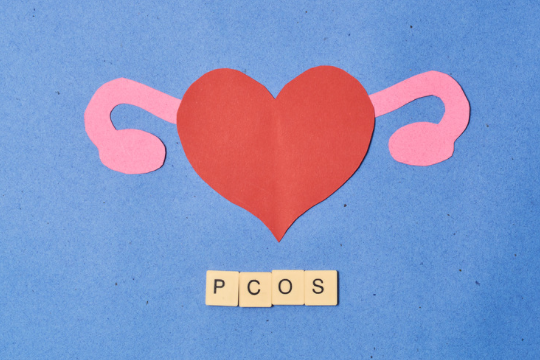Polycystic Ovary Syndrome (PCOS) is a hormonal disorder that impacts an estimated 8% to 13% of women of reproductive age, with up to 70% of cases going undiagnosed, according to the World Health Organization (WHO). This condition not only affects reproductive health but also has implications for metabolic and emotional well-being. Here’s what you need to know about PCOS, its symptoms, causes, and management strategies.
What Is PCOS?
PCOS is a condition characterized by hormonal imbalances that disrupt normal ovarian function. Women with PCOS may experience irregular ovulation or no ovulation at all, leading to fertility challenges. Despite the name, not all individuals with PCOS develop ovarian cysts.
The syndrome is a leading cause of infertility but also contributes to a range of other health issues, making timely diagnosis and management essential.
Symptoms of PCOS
Symptoms can vary widely, but common signs include:

- Irregular Periods: Infrequent, prolonged, or absent menstrual cycles.
- Excess Androgens: High levels of male hormones can lead to physical signs like excess facial or body hair (hirsutism) and severe acne.
- Polycystic Ovaries: Enlarged ovaries with multiple fluid-filled follicles visible on ultrasound.
- Weight Gain: Difficulty managing weight despite lifestyle changes.
- Hair Thinning: Male-pattern hair loss on the scalp.
- Darkened Skin Patches: Areas of skin discoloration, often in the neck or underarms.
If these symptoms resonate with you, it’s important to consult a healthcare provider for a proper evaluation.
Causes and Risk Factors
The exact cause of PCOS is unknown, but it is believed to result from a combination of genetic and environmental factors:
- Insulin Resistance: High insulin levels can lead to increased androgen production, disrupting ovulation.
- Hormonal Imbalances: Excess luteinizing hormone (LH) or androgens interfere with normal ovarian function.
- Genetics: PCOS often runs in families, suggesting a genetic component.
- Inflammation: Low-grade inflammation may also contribute to elevated androgens.
Certain factors, such as obesity or a family history of PCOS, can increase your risk of developing the condition.
Diagnosing PCOS
Diagnosing PCOS requires meeting at least two of the following criteria, known as the Rotterdam Criteria:
- Irregular or Absent Ovulation: Manifested by infrequent or absent periods.
- Hyperandrogenism: Elevated androgen levels confirmed by blood tests or physical signs.
- Polycystic Ovaries: Identified through ultrasound.
Your healthcare provider may also conduct tests to rule out other conditions with similar symptoms.
Health Implications of PCOS

Beyond reproductive health, PCOS is linked to several long-term complications:
- Infertility: Due to irregular ovulation or anovulation.
- Type 2 Diabetes: Insulin resistance increases the risk of developing diabetes.
- Heart Disease: Elevated risk due to associated conditions like high blood pressure or cholesterol.
- Mental Health Issues: Higher prevalence of depression and anxiety.
- Endometrial Cancer: Irregular shedding of the uterine lining can increase cancer risk.
Treatment Options for PCOS
While there is no cure for PCOS, treatments focus on managing symptoms and preventing complications:
1. Lifestyle Changes
- Dietary Adjustments: A balanced, low-glycemic diet can help regulate blood sugar and improve weight management.
- Regular Exercise: Reduces insulin resistance and promotes hormonal balance.
2. Medications
- Birth Control Pills: Regulate periods, reduce excess androgens, and improve acne.
- Metformin: Improves insulin sensitivity and may restore regular ovulation.
- Fertility Treatments: Clomiphene or letrozole can stimulate ovulation in women trying to conceive.
3. Cosmetic Treatments
- Options like laser hair removal or topical treatments can address physical symptoms like hirsutism or acne.
Living with PCOS
Coping with PCOS involves more than just medical treatment. Building a strong support system and staying informed about the condition can empower you to take control of your health.
Keeping a symptom diary and regularly consulting your healthcare provider are proactive steps toward managing this lifelong condition effectively.
If you’re experiencing symptoms of PCOS or struggling with its effects, our team at the Women’s Center of Athens is here to help. Schedule an appointment to explore personalized treatment options and take the first step toward better health.


